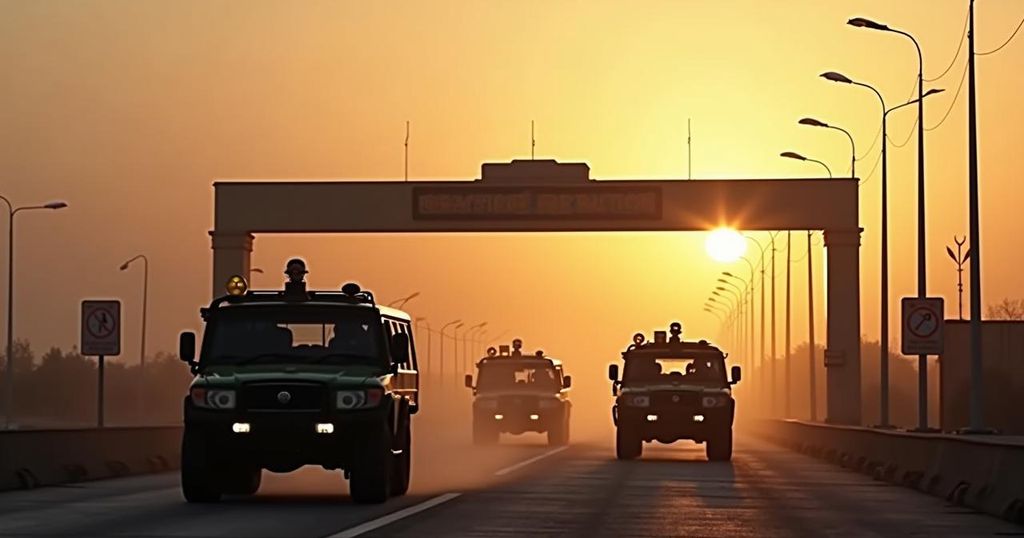Kharlachi Border Crossing Reopens Following Tribal Clashes
The Kharlachi Border Crossing between Pakistan and Afghanistan has reopened after a nine-day closure due to clashes among local tribes, which resulted in significant shortages of essential supplies for residents. Authorities report a ceasefire has been reached, and steps are underway to discuss peace and prevent further conflict.
The Kharlachi Border Crossing, a significant route between Pakistan and Afghanistan, has been reopened after a nine-day closure due to violent clashes between tribal communities in the Kurram district of Khyber Pakhtunkhwa. This closure severely impacted local residents who faced shortages of essential supplies, including food, medicine, and fuel. The discord stemmed from conflicts between tribes in central Kurram and those in the Balishkhel region, which subsequently affected surrounding areas such as Pewar and Teri Mangal. In response to the unrest, regional elders from the Turi-Bangash tribes have urged authorities for swift interventions to facilitate peace. Reports from police sources indicate that hostilities have subsided, leading to the stabilization of the area. In order to maintain security, law enforcement and military personnel were deployed to critical locations. Furthermore, a ceasefire had been previously established between the conflicting tribes, which had lasted for approximately one month after August’s violent confrontation that resulted in significant casualties among the local population. Khyber Pakhtunkhwa Governor Faisal Karim Kundi reported that around 60 individuals lost their lives in Parachinar, with many more injured during the recent turbulence, which reignited over a land dispute related to trench construction. The ongoing territorial conflicts had previously caused severe disruptions, including the closure of the Peshawar-Parachinar road, greatly affecting citizens’ access to basic necessities. Kurram’s Deputy Commissioner, Javedullah Mehsud, announced ongoing efforts to stabilize the situation with the assistance of tribal elders and the jirga, the assembly of tribal leaders. Concurrently, various jirgas are being hosted by different tribes to negotiate and explore avenues for establishing lasting peace. Tribal leaders, including Jalal Bangash and Member of the National Assembly Engr Hamid Hussain, have highlighted the futility of these conflicts, stating, “No one would benefit from the ongoing conflict and that a trivial issue between two families escalated into violent clashes due to the negligence of the administration and other responsible authorities.”
The Kharlachi Border Crossing serves as a crucial connection between Afghanistan and Pakistan, facilitating the movement of goods and people essential for the local economy. However, tribal conflicts in this region have historically disrupted this flow, often leading to severe consequences for the communities dependent on these vital resources. The recent clashes originated from long-standing disputes between local tribes over land and resource allocation, exacerbated by administrative inaction and insufficient conflict resolution efforts by authorities. Understanding these entrenched tensions is essential to grasping the significance of the reopening of this border crossing and the urgent need for reconciliation efforts among the conflicting parties.
The reopening of the Kharlachi Border Crossing marks a critical development in the effort to restore normalcy following recent violent tribal clashes. With both local authorities and tribal leaders calling for peace and conflict resolution, the situation underscores the need for ongoing dialogue and intervention to prevent future escalations. The cooperation of tribal elders and security forces will be essential in establishing lasting stability in the region, ensuring that community needs are met without succumbing to violence.
Original Source: www.newsx.com








Post Comment